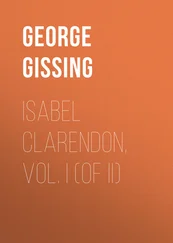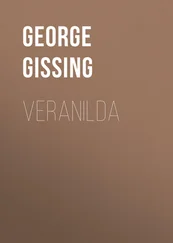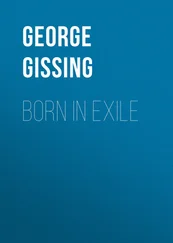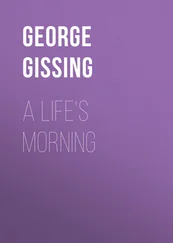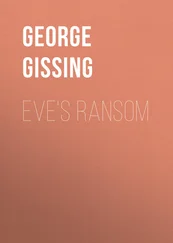George Gissing - Demos
Здесь есть возможность читать онлайн «George Gissing - Demos» — ознакомительный отрывок электронной книги совершенно бесплатно, а после прочтения отрывка купить полную версию. В некоторых случаях можно слушать аудио, скачать через торрент в формате fb2 и присутствует краткое содержание. Жанр: foreign_prose, literature_19, foreign_antique, на английском языке. Описание произведения, (предисловие) а так же отзывы посетителей доступны на портале библиотеки ЛибКат.
- Название:Demos
- Автор:
- Жанр:
- Год:неизвестен
- ISBN:нет данных
- Рейтинг книги:3 / 5. Голосов: 1
-
Избранное:Добавить в избранное
- Отзывы:
-
Ваша оценка:
- 60
- 1
- 2
- 3
- 4
- 5
Demos: краткое содержание, описание и аннотация
Предлагаем к чтению аннотацию, описание, краткое содержание или предисловие (зависит от того, что написал сам автор книги «Demos»). Если вы не нашли необходимую информацию о книге — напишите в комментариях, мы постараемся отыскать её.
Demos — читать онлайн ознакомительный отрывок
Ниже представлен текст книги, разбитый по страницам. Система сохранения места последней прочитанной страницы, позволяет с удобством читать онлайн бесплатно книгу «Demos», без необходимости каждый раз заново искать на чём Вы остановились. Поставьте закладку, и сможете в любой момент перейти на страницу, на которой закончили чтение.
Интервал:
Закладка:
‘A short time—two day—I did not need—’
Mr. Wyvern motioned with his hand, kindly.
‘Then I was not mistaken,’ he said, averting his eyes for the first time, ‘in thinking that I saw her in Paris.’
‘In Paris?’ Hubert repeated, with a poor affectation of indifference.
‘I made a short stay before crossing. I had business at a bank one day; as I stood before the counter a gentleman entered and took a place beside me. A second look assured me that he was the man who met me at the edge of the wood that morning. I suppose he remembered me, for he looked away and moved from me. I left the bank, and found an open carriage waiting at the door. In it sat the lady of whom we speak. I took a turn along the pavement and back again. The Frenchman entered the carriage; they drove away.’
Hubert’s eyes were veiled; he breathed through his nostrils. Again there was silence.
‘Mr. Eldon,’ resumed the vicar, ‘I was a man of the world before I became a Churchman; you will notice that I affect no professional tone in speaking with you, and it is because I know that anything of the kind would only alienate you. It appeared to me that chance had made me aware of something it might concern you to hear. I know nothing of the circumstances of the case, merely offer you the facts.’
‘I thank you,’ was Hubert’s reply in an undertone.
‘It impressed me, that letter ready stamped for Wanley Manor. I thought of it again after the meeting in Paris.’
‘I understand you. Of course I could explain the necessity. It would be useless.’
‘Quite. But experience is not, or should not be, useless, especially when commented on by one who has very much of it behind him.’
Hubert stood up. His mind was in a feverishly active state, seeming to follow several lines of thought simultaneously. Among other things, he was wondering how it was that throughout this conversation he had been so entirely passive. He had never found himself under the influence of so strong a personality, exerted too in such a strangely quiet way.
‘What are your plans—your own plans?’ Mr. Wyvern inquired.
‘I have none.’
‘Forgive me;—there will be no material difficulties?’
‘None; I have four hundred a year.’
‘You have not graduated yet, I believe?’
‘No. But I hardly think I can go back to school.’
‘Perhaps not. Well, turn things over. I should like to hear from you.’
‘You shall.’
Hubert continued his walk to the Manor. Before the entrance stood two large furniture-vans; the doorway was littered with materials of packing, and the hall was full of objects in disorder, footsteps made a hollow resonance in all parts of the house, for everywhere the long wonted conditions of sound were disturbed. The library was already dismantled; here he could close the door and walk about without fear of intrusion. He would have preferred to remain in the open air, but a summer shower had just begun as he reached the house. He could not sit still; the bare floor of the large room met his needs.
His mind’s eye pictured a face which a few months ago had power to lead him whither it willed, which had in fact led him through strange scenes, as far from the beaten road of a college curriculum as well could be. It was a face of foreign type, Jewish possibly, most unlike that ideal of womanly charm kept in view by one who seeks peace and the heart’s home. Hubert had entertained no thought of either. The romance which most young men are content to enjoy in printed pages he had acted out in his life. He had lived through a glorious madness, as unlike the vulgar oat-sowing of the average young man of wealth as the latest valse on a street-organ is unlike a passionate dream of Chopin. However unworthy the object of his frenzy—and perhaps one were as worthy as another—the pursuit had borne him through an atmosphere of fire, tempering him for life, marking him for ever from plodders of the dusty highway. A reckless passion is a patent of nobility. Whatever existence had in store for him henceforth, Hubert could feel that he had lived.
An hour’s communing with memory was brought to an end by the ringing of the luncheon-bell. Since his illness Hubert had taken meals with his mother in her own sitting-room. Thither he now repaired.
Mrs. Eldon had grown older in appearance since that evening of her son’s return. Of course she had discovered the cause of his illness, and the incessant torment of a great fear had been added to what she suffered from the estrangement between the boy and herself. Her own bodily weakness had not permitted her to nurse him; she had passed days and nights in anguish of expectancy. At one time it had been life or death. If he died, what life would be hers through the brief delay to which she could look forward?
Once more she had him by her side, but the moral distance between them was nothing lessened. Mrs. Eldon’s pride would not allow her to resume the conversation which had ended so hopelessly for her, and she interpreted Hubert’s silence in the saddest sense. Now they were about to be parted again. A house had been taken for her at Agworth, three miles away; in her state of health she could not quit the neighbourhood of the few old friends whom she still saw. But Hubert would necessarily go into the world to seek some kind of career. No hope shone for her in the prospect.
Whilst the servant waited on them at luncheon, mother and son exchanged few words. Afterwards, Mrs. Eldon had her chair moved to the window, where she could see the garden greenery.
‘I called on Mr. Mutimer,’ Hubert said, standing near her. Through the meal he had cast frequent glances at her pale, nobly-lined countenance, as if something had led him to occupy his thoughts with her. He looked at her in the same way now.
‘Did you? How did he impress you?’
‘He is not quite the man I had expected; more civilised. I should suppose he is the better kind of artisan. He talks with a good deal of the working-class accent, of course, but not like a wholly uneducated man.’
‘His letter, you remember, was anything but illiterate. I feel I ought to ask him to come and see me before we leave.’
‘The correspondence surely suffices.’
‘You expressed my thanks?’
‘Conscientiously.’
‘I see you found the interview rather difficult, Hubert.’
‘How could it be otherwise? The man is well enough, of his kind, but the kind is detestable.’
‘Did he try to convert you to Socialism?’ asked his mother, smiling in her sad way.
‘I imagine he discerned the hopelessness of such an under taking. We had a little passage of arms,—quite within the bounds of civility. Shall I tell you how I felt in talking with him? I seemed to be holding a dialogue with the twentieth century, and you may think what that means.’
‘Ah, it’s a long way off, Hubert.’
‘I wish it were farther. The man was openly exultant; he stood for Demos grasping the sceptre. I am glad, mother, that you leave Wanley before the air is poisoned.’
‘Mr. Mutimer does not see that side of the question?’
‘Not he! Do you imagine the twentieth century will leave one green spot on the earth’s surface?’
‘My dear, it will always be necessary to grow grass and corn.’
‘By no means; depend upon it. Such things will be cultivated by chemical processes. There will not be one inch left to nature; the very oceans will somehow be tamed, the snow-mountains will be levelled. And with nature will perish art. What has a hungry Demos to do with the beautiful?’
Mrs. Eldon sighed gently.
‘I shall not see it.’
Her eyes dreamed upon the soft-swaying boughs of a young chestnut. Hubert was watching her face; its look and the meaning implied in her words touched him profoundly.
Читать дальшеИнтервал:
Закладка:
Похожие книги на «Demos»
Представляем Вашему вниманию похожие книги на «Demos» списком для выбора. Мы отобрали схожую по названию и смыслу литературу в надежде предоставить читателям больше вариантов отыскать новые, интересные, ещё непрочитанные произведения.
Обсуждение, отзывы о книге «Demos» и просто собственные мнения читателей. Оставьте ваши комментарии, напишите, что Вы думаете о произведении, его смысле или главных героях. Укажите что конкретно понравилось, а что нет, и почему Вы так считаете.


